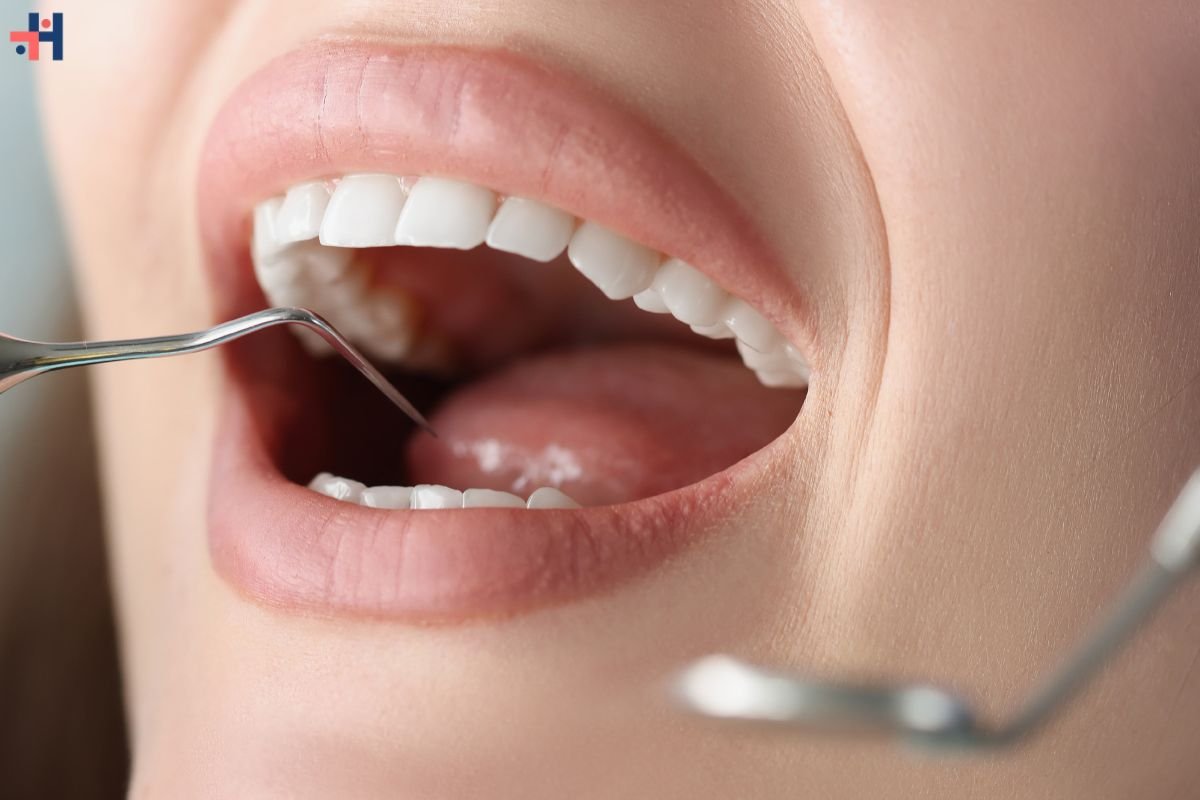Have you ever experienced a sudden salty taste in mouth, leaving you puzzled and concerned? This peculiar sensation can be alarming, prompting questions about its underlying causes and potential health implications. In this comprehensive guide, we delve into the phenomenon of a salty taste in mouth, exploring its various triggers, associated symptoms, and effective remedies.
Understanding the Salty Taste in Mouth:
The human palate is incredibly sensitive, capable of discerning a wide array of tastes, including salty, sweet, sour, bitter, and umami. The presence of a salty taste in mouth, particularly when unexpected, can be perplexing. While occasional encounters with salty foods or drinks are expected, persistent saltiness in the mouth without an obvious dietary cause warrants further investigation.
Causes of Salty Taste in Mouth:

- Dehydration: Insufficient hydration can lead to an imbalance in electrolytes, causing a salty taste in the mouth. Individuals who fail to consume an adequate amount of water may experience this sensation, especially during periods of exertion or in hot weather.
- Oral Health Issues: Certain dental conditions, such as gingivitis, periodontitis, or oral infections, can contribute to a salty taste sensation. Poor oral hygiene practices may also result in the accumulation of bacteria or plaque, leading to an altered taste in the mouth.
- Side Effects of Medications: Some medications, including antibiotics, antidepressants, and antihypertensive drugs, may cause dry mouth or alter taste perceptions, resulting in a salty taste sensation.
- Nutritional Deficiencies: Imbalances in electrolytes, particularly sodium and potassium, can manifest as a salty taste in mouth. Inadequate intake of essential nutrients or underlying medical conditions affecting nutrient absorption may contribute to this phenomenon.
- Hormonal Changes: Hormonal fluctuations, such as those occurring during pregnancy or menopause, can influence taste perceptions, potentially leading to a salty taste in mouth.
- Gastrointestinal Disorders: Conditions affecting the digestive system, such as acid reflux, gastritis, or gastroesophageal reflux disease (GERD), may result in the reflux of stomach acids into the mouth, imparting a salty or sour taste.
- Respiratory Infections: Respiratory infections, such as sinusitis or postnasal drip, can lead to the accumulation of mucus in the mouth, which may have a salty taste. These infections may also cause inflammation of the nasal passages, affecting taste perception.
- Neurological Disorders: Certain neurological conditions, such as Bell’s palsy or multiple sclerosis, can disrupt the normal functioning of taste buds and sensory nerves, leading to taste abnormalities, including a salty taste in the mouth.

Symptoms Associated with Salty Taste in Mouth:
In addition to the sensation of saltiness in the mouth, individuals experiencing this phenomenon may encounter various accompanying symptoms, including:
- Dry mouth
- Thirst
- Bad breath (halitosis)
- Mouth ulcers or sores
- Changes in appetite
- Nausea or vomiting
Remedies and Management Strategies:
- Stay Hydrated: Adequate hydration is crucial for maintaining electrolyte balance and promoting saliva production. Consuming sufficient water throughout the day can help alleviate the salty taste in mouth.
- Maintain Oral Hygiene: Practicing good oral hygiene habits, such as regular brushing, flossing, and using mouthwash, can help prevent oral health issues that may contribute to a salty taste sensation.
- Review Medications: If experiencing a persistent salty taste, consult with a healthcare provider to evaluate the possibility of medication side effects. Adjusting dosage or switching to alternative medications may help alleviate the symptoms.
- Balanced Diet: Ensure a balanced diet rich in essential nutrients, including sodium, potassium, and vitamins, to support overall health and prevent nutritional deficiencies that may lead to taste alterations.
- Manage Stress: Stress and anxiety can exacerbate symptoms of dry mouth and alter taste perceptions. Engage in relaxation techniques, such as meditation, yoga, or deep breathing exercises, to reduce stress levels and promote saliva production.
- Address Underlying Health Conditions: If the salty taste persists or is accompanied by other concerning symptoms, seek medical evaluation to identify and address any underlying health conditions contributing to the issue.
- Saliva Stimulants: Chewing sugar-free gum or consuming sour candies can stimulate saliva production, which may help alleviate dry mouth and reduce the sensation of saltiness in the mouth.
- Nasal Irrigation: For individuals experiencing a salty taste due to sinusitis or postnasal drip, nasal irrigation with saline solution can help clear mucus from the nasal passages, reducing the likelihood of mucus accumulation in the mouth.

Conclusion:
The sensation of a salty taste in mouth can be disconcerting, but it is often manageable with lifestyle modifications and appropriate medical intervention. By understanding the potential causes, associated symptoms, and effective remedies, individuals can take proactive steps to alleviate this discomfort and promote oral and overall health. If experiencing persistent or concerning symptoms, consult with a healthcare professional for personalized guidance and treatment recommendations. With proper care and attention, the salty taste in mouth can be addressed, restoring comfort and well-being.









